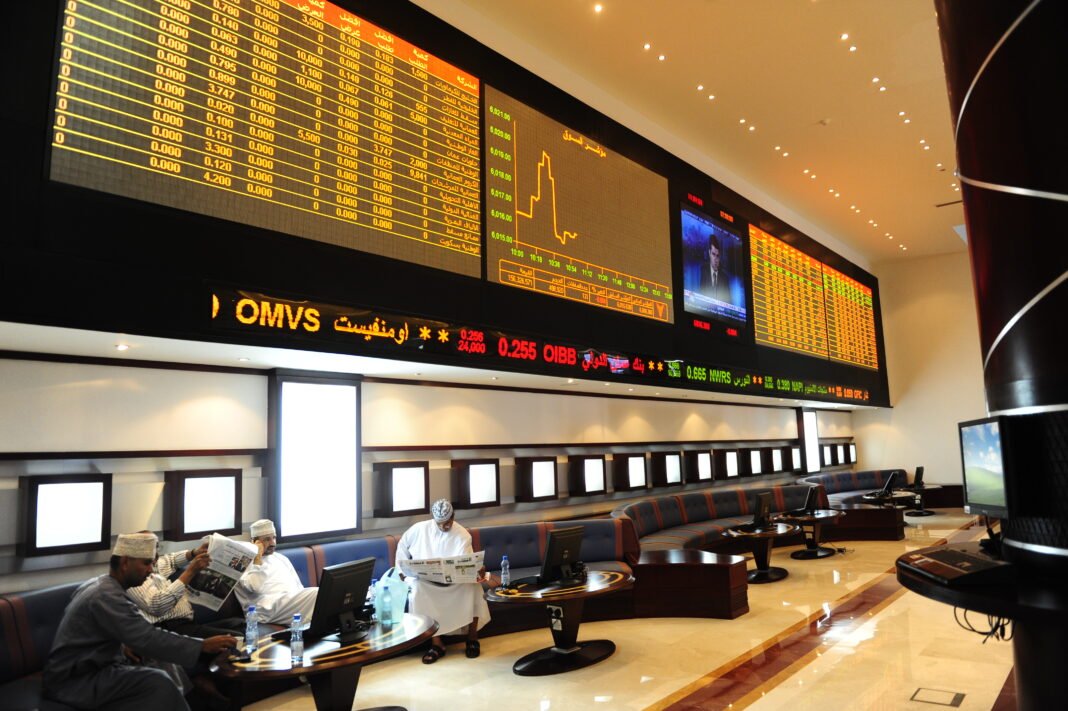The Oman stock market downturn deepened this week as regional conflicts unsettled investor confidence. Muscat’s market declined 0.78 percent, ending six straight weeks of positive momentum.
Rising geopolitical tensions across the Middle East shook investor sentiment. As a result, risk-averse trading increased. Many shifted capitals toward safe-haven assets, weakening demand for regional equities, including in Oman.
Despite strong oil price gains, the decline in Omani equities persisted. Military developments in Iran boosted oil values, yet those same events heightened uncertainty, outweighing potential regional economic benefits.
The Industrial sector led losses this week. It dropped 1.44 percent, pulling the overall index down. Al Anwar Ceramic fell by 6.09 percent, while Al Maha Ceramics dropped 4.21 percent. Gulf Mushroom Products slipped 0.45 percent, extending the sector’s decline.
Meanwhile, the Services sector added to the Oman stock market downturn. It posted a 0.79 percent weekly loss. OQ Gas Networks was heavily traded but lost 1.27 percent.
National Gas fell steeply by 6.45 percent. Asyad Shipping and Oman Telecom dropped 1.6 percent and 0.71 percent, respectively.
The Financial sector also weakened. It recorded a 0.56 percent decline. Bank Dhofar fell sharply by 6.21 percent. Oman Emirates lost 4.05 percent, and Global Financial Investment declined by 0.94 percent.
Market analysts attribute the Oman stock market downturn to a mix of external risk and recent overperformance. Previous gains made stocks vulnerable to correction. However, geopolitical escalation added sudden pressure.
Despite the losses, some see this downturn as temporary. Oil prices remain high. That could support the Omani economy once tensions ease. Still, in the short term, market sentiment stays cautious.
Investors will now monitor the Gulf closely. Further developments in regional politics could continue to drive the Oman stock market downturn. Many expect volatility to remain until stability returns.
Oman’s economy remains strong on fundamentals. Yet, stocks often react quickly to global events. For now, defensive investing dominates strategies in Muscat.
In conclusion, the weak performance of Oman’s stock market shows how external events can quickly affect regional markets, even during periods of recovery.





